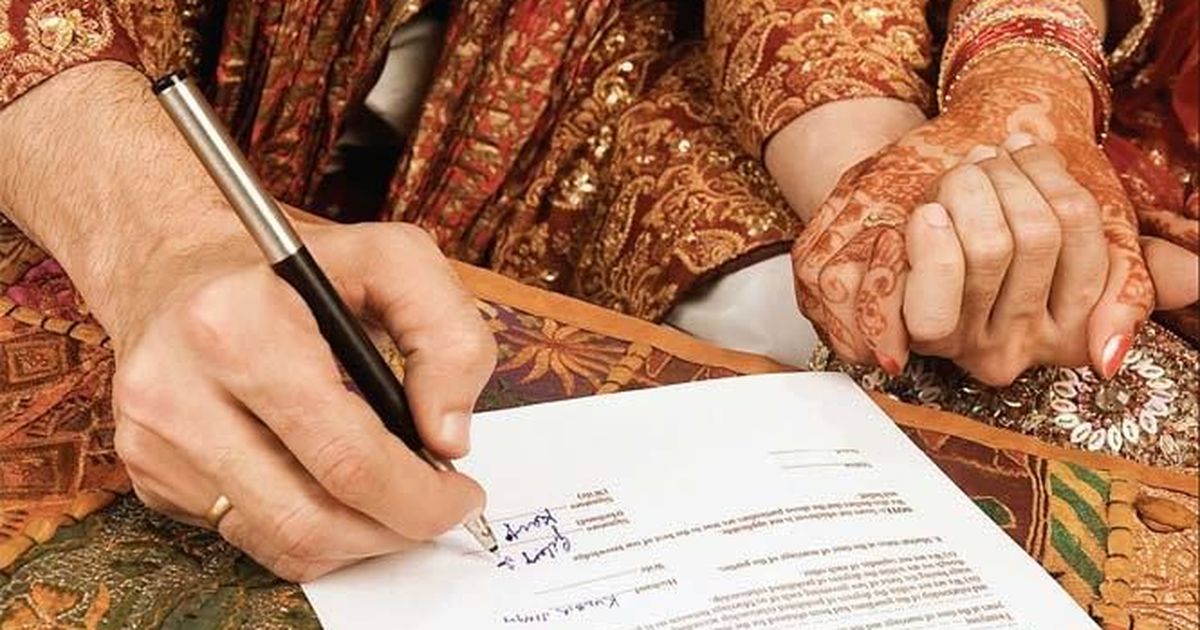Marriage Registration Under Hindu & Special Marriage Act: Key Differences

Strong 8k brings an ultra-HD IPTV experience to your living room and your pocket.
In India, the process of Marriage Registration is governed by different legal frameworks, the most common being the Hindu Marriage Act, 1955 and the Special Marriage Act, 1954. Both acts provide legal recognition to marriages, but they differ significantly in terms of eligibility, procedure, and the legal benefits they offer.
Understanding these differences is essential for couples planning to get married and register their union. Whether you're looking to marry under religious customs or seeking a secular approach, this guide will help you navigate the registration process. Additionally, we will discuss the role of a Marriage Registration Lawyer, how to register your marriage online, and the importance of obtaining your Marriage Registration Certificate.
What is the Hindu Marriage Act?
The Hindu Marriage Act, 1955 governs marriages among Hindus, Buddhists, Jains, and Sikhs in India. Under this Act, marriage registration is optional but is highly recommended to ensure the marriage is legally recognized.
Key Features of the Hindu Marriage Act
Eligibility: The Act applies to couples who identify as Hindus, Sikhs, Jains, or Buddhists. It doesn’t apply to Muslims, Christians, or Jews.
Marriage Rituals: The marriage under this Act is typically performed with traditional religious customs and rituals.
Conditions: Both parties must be of legal age (21 for men and 18 for women), and the marriage must not violate any existing marital ties (i.e., no bigamy).
Marriage Registration: While registration is not mandatory under the Hindu Marriage Act, it’s recommended to avoid future legal issues, particularly when claiming inheritance or filing for divorce.
What is the Special Marriage Act?
The Special Marriage Act, 1954 provides a secular framework for marriage registration in India. It is designed for couples who do not wish to marry under personal laws or for those from different religions or backgrounds.
Key Features of the Special Marriage Act
Eligibility: The Special Marriage Act applies to all Indian citizens, irrespective of their religion, caste, or ethnicity. This makes it the ideal option for interfaith or intercaste marriages.
Secular Approach: The Act does not require any religious rituals or ceremonies, making it an ideal choice for couples who want a non-religious union.
Marriage Registration: Unlike the Hindu Marriage Act, registration under the Special Marriage Act is mandatory. Couples must submit an application to the marriage registrar, who will then issue the Marriage Registration Certificate after completing the necessary formalities.
Key Differences Between the Hindu Marriage Act and the Special Marriage Act
Feature
Hindu Marriage Act
Special Marriage Act
Eligibility
Only for Hindus, Buddhists, Sikhs, and Jains
Applicable to all Indian citizens, regardless of religion
Marriage Ceremony
Religious ceremonies and rituals are required
No religious rituals required
Legal Framework
Governed by personal laws specific to religion
Secular law, applicable to all communities
Registration Requirement
Optional (but highly recommended)
Mandatory registration
Age Requirement
Minimum age of 21 for men and 18 for women
Minimum age of 21 for men and 18 for women
Court Involvement
No court involvement necessary
Marriage is registered in front of a marriage officer in court
Interfaith/Intercaste Marriages
Not applicable to interfaith marriages
Allows interfaith, intercaste, and inter-community marriages
Proof of Marriage
Marriage certificate optional, but recommended
Marriage certificate is mandatory
Why Choose the Hindu Marriage Act or the Special Marriage Act?
The choice of which Act to use largely depends on the couple’s personal beliefs, religion, and marital circumstances. Here's a breakdown of when each Act may be more suitable:
When to Choose the Hindu Marriage Act
If both parties belong to the Hindu, Sikh, Jain, or Buddhist community and wish to marry under religious customs.
If the couple does not intend to marry someone of a different religion or caste.
If you want to get married according to the traditional customs of your community but still need legal validation through Marriage Registration.
When to Choose the Special Marriage Act
If the couple belongs to different religions or castes and wants a secular framework for their marriage.
If either of the partners does not want to perform religious ceremonies or follow traditional marriage rituals.
If one or both individuals are already married and seeking a second marriage (in such cases, the Special Marriage Act is the preferred option).
How to Register Your Marriage: Hindu Marriage Act vs. Special Marriage Act
Whether you choose to marry under the Hindu Marriage Act or the Special Marriage Act, both processes involve a Marriage Registration Certificate. The key difference lies in the procedure:
Marriage Registration Under the Hindu Marriage Act
Step 1: Perform the religious marriage ceremony as per the traditions of your community.
Step 2: Apply for marriage registration at the local marriage registrar’s office.
Step 3: Submit required documents (identity proof, age proof, photographs, marriage invitation card).
Step 4: Register your marriage with the local registrar’s office to obtain your Marriage Registration Certificate.
While registration is not mandatory, it is essential to legally protect your rights, especially in the case of inheritance, property rights, or divorce proceedings.
Marriage Registration Under the Special Marriage Act
Step 1: Submit a notice of intended marriage to the marriage registrar at least 30 days before the marriage.
Step 2: The registrar will display the notice publicly for 30 days to allow any objections.
Step 3: After the notice period, both parties must appear before the registrar along with two witnesses for the marriage ceremony.
Step 4: The marriage officer solemnizes the marriage, and a Marriage Registration Certificate is issued.
Since registration under the Special Marriage Act is mandatory, the process is more formal and requires the involvement of a marriage officer.
The Role of a Marriage Registration Lawyer
Navigating the legal aspects of marriage registration can be complex, especially when it involves interfaith or intercaste marriages, or when you face any legal challenges. This is where a Marriage Registration Lawyer becomes crucial.
How a Marriage Registration Lawyer Can Help
Guidance on the Right Act: A lawyer can help you understand the best legal framework for your marriage, based on your religion, caste, and personal preferences.
Assistance with Documentation: The Marriage Registration Lawyer ensures that all documents are in order and meets the legal requirements for registration.
Handling Objections: In case of objections during the registration process, a lawyer can represent you and help resolve any legal disputes.
Filing for Divorce or Separation: If the marriage does not work out, a Marriage Registration Lawyer in Delhi or Marriage Registration Lawyer in Noida can help with divorce and separation procedures.
Online Marriage Registration: A Convenient Solution
In today's fast-paced world, Online Marriage Registration has made the process even more convenient. Many states in India now offer online platforms for marriage registration, making it easier for couples to complete the formalities from the comfort of their homes.
Advantages of Online Marriage Registration
Convenience: You can apply for marriage registration online without needing to visit the registrar's office in person.
Time-Saving: The entire registration process can be completed in a fraction of the time it would take in person.
Transparency: Track your application status and receive updates directly online.
How to Register Online
Step 1: Visit your local marriage registrar’s official website.
Step 2: Complete the online application form with accurate details.
Step 3: Upload necessary documents such as identity proof, age proof, photographs, and marriage invitation (if applicable).
Step 4: Pay the required fee and schedule an appointment for document verification.
Step 5: After verification, receive your Marriage Registration Certificate.
Conclusion
Choosing between the Hindu Marriage Act and the Special Marriage Act depends on your personal circumstances, religious beliefs, and preferences. While both acts serve to legally recognize a marriage, they have distinct requirements and processes.
For a hassle-free experience and to ensure that all legal aspects of your marriage are handled correctly, it’s advisable to consult a Marriage Registration Lawyer. Whether you're in Delhi, Noida, or anywhere else in India, having legal assistance can simplify the process and ensure that your Marriage Registration Certificate is issued without delays.
For expert legal assistance with Marriage Registration under the Hindu Marriage Act or the Special Marriage Act, contact LawChef today. Our experienced team of lawyers is here to guide you through every step of the marriage registration process.
Note: IndiBlogHub features both user-submitted and editorial content. We do not verify third-party contributions. Read our Disclaimer and Privacy Policyfor details.


